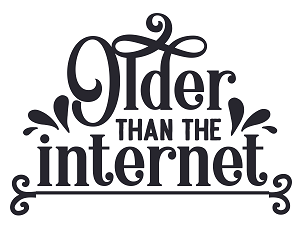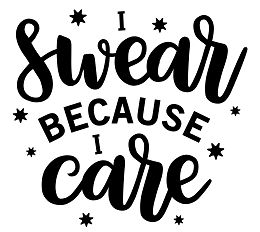 By now, everyone has heard of IQ, Intelligence Quotient. But what about EQ, Emotional Quotient? EQ, also referred to as Emotional Intelligence or EI, is drawing increasing attention as a means to improve one’s career and personal life.
By now, everyone has heard of IQ, Intelligence Quotient. But what about EQ, Emotional Quotient? EQ, also referred to as Emotional Intelligence or EI, is drawing increasing attention as a means to improve one’s career and personal life.
It’s wonderful to possess a great deal of knowledge but if you’re lacking in people skills, you can fail to impress at the job and get passed over for promotion. You can also struggle with communication in your romantic relationships and family relationships if you aren’t able to “read” people and situations accurately.
What may not seem like a big issue to you could be a deal breaker if you don’t pick up on the cues that will add to your emotional intelligence in relation to the most important people in your life.
In this guide, we will cover what emotional intelligence is and how to improve it, for better relationships at work and in your personal life. Let’s get started with emotional intelligence and how you can measure yours.
How to Measure Your Emotional Intelligence
Your emotional intelligence can be assessed in a number of ways. The first is in practical, everyday situations. Are you getting along well with others? Or does your interaction with one or more of the people in your life always feel like a powder keg about to explode? Do you feel close to loved ones and your colleagues, like you are on the same page? Or do you think you just “don’t get it,” and have no idea what’s going on in their heads?
Don’t worry; you’re not alone. In fact, there are dozens of emotional intelligence websites with online tests you can take in order to evaluate your emotional quotient, and come up with a plan to try to improve it so your relationships at work and home will become a lot easier.
There is no one right answer to many of the quiz questions, but they will usually point to what you are doing well and offer suggestions as to how you can manage your emotions better and read people more accurately.
In this way your style and tone will match the communication style and tone of various people you have to deal with, allowing you to connect more skillfully with others – especially when you are under pressure or distracted and don’t put as much thought into your communication as you might.
The world tends to be divided into introverts and extroverts – quiet people versus very outgoing ones. Neither one nor the other is best; they are both just labels. Depending on our moods, we can be one or the other. Depending on who we are spending time with, we might also be one or the other.
These sorts of labels are also a question of perspective. An introvert is quieter than who, for example? And how is that quietness perceived? Some could interpret the person as shy. Others might think that they are arrogant or stand-offish. Both could be true at different times, with different companions.
By contrast, some extroverts might be “faking it ‘til the make it” – that is, pretending to be more outgoing than they really are in order to disguise how shy, nervous and/or insecure they are.
So how can you tell?
The first place to begin is in understanding yourself. Who are you, really? And who can you “really be yourself” with? Is the level of sharing with those people appropriate, or not? For example, there are things you might tell your best friend or romantic partner which you would really never wish to share with a work colleague or your boss.
Once you start to assess your own personality and in particular your “people skills,” you can begin to get to know others better. By knowing them better, you can establish the kind of connections that make relationships easy, not an uphill struggle.
One way to this might be to decide to become a better listener, instead of trying to entertain everyone or put your contributions ahead of everyone else’s. A good listener not only listens; they listen attentively, so that when they finally do speak, what they say is appropriate.
For example, if someone says to you, “I’m having such a bad day,” you might think you are being sympathetic if you say, “I know what you mean. Let me tell you about MY day.” In fact, you are devaluing and ignoring their attempt to communicate with you, not listening, and putting yourself first. After a while, people will grow tired of spending time with someone who seems so self-centered.
By contrast, the simple phrase, “Tell me all about it,” opens up the door to deeper communication. If you don’t have time then and there to listen, be honest. Say, “I have a meeting in 15 minutes, but I’ll be free after 4pm if you want to find me then so we can talk.”
This kind of emotional intelligence is important because both people will be getting what they want and need from the connection. No one expects you to care for another’s feeling all the time to the point where you are “running on empty” because you feel so drained.
Dr. Gary Chapman, author of The 5 Love Languages, equates good relationships with a full gas tank. If a person feels cared for, their tank is full, and things go smoothly. If a person does not feel cared for and valued, the relationship will stop, start, sputter, and might conk out completely. You can take his quizzes online free if you wish to deal with romantic connections and family ones.
He also formulated The Five Languages of Apology – very useful in business and customer service situations. In the same way that a person feels valued through hearing certain words or witnessing certain actions that can be described as love languages, colleagues, clients and customers will often have one or two specific apology languages, words, phrases or actions they are looking for that “prove” they are valued. If they don’t hear or see them, there is a lack of connection and the relationship might end.
You can take the quiz online free here: The Five Love Languages of Aplogy – Quiz
For general emotional intelligence, there are a range of quizzes online, some of them a great deal longer than others. Just go to your favorite search engine, type in “test your emotional intelligence free,” and see which sites come up.
It is worth it to take at least a couple of them because the questions differ and one quiz might pick up on something that another might miss. They will then make recommendations on how you can be a more emotionally aware person.
What attributes does an emotionally aware person possess? Let’s look at this topic in the next section.
Characteristics of an Emotionally Intelligent Person
There are a number of characteristics most emotionally intelligent people possess. In addition to being a good listener and possessing both sympathy and empathy, they tend to be even-tempered even in stressful situations.
They don’t ride a rollercoaster of emotions or take things out on others if things aren’t going well. They don’t play the blame game; instead, they stay calm as they try to find a solution.
They rely on their intuition, and take responsibility for their actions. They are honest with themselves and others. They take criticism well, using it constructively in order to try to maximize their strengths and minimize their weaknesses.
They are in control of emotions; they don’t let their emotions control them. They also take care of themselves physically and emotionally. They work hard, but don’t drive themselves to the point where they are drained and get out of control because they are so stressed and exhausted.
Through this control and self-understanding, they are able to understand and deal well with others. They can manage people well and lead by example. They are driven by success, but not at any price. They are usually motivated to help others and make the world a better place. They are also team players, willing to go the extra mile to help others.
Those with the highest emotional intelligence have been shown to have several particular characteristics which contribute to their success. They demonstrate:
- Self-awareness
- Self-control
- Motivation, an inner vision that drives them to succeed in making things better for others
- Empathy
- Helpfulness
The latter is an important trait for anyone to have in terms of their professional and personal relationships, but it needs to be done intelligently and perceptively. There is a big difference between saying, “I can see you’re having trouble with this project. Here’s what you have to do,” versus, “Do you need any help?” or “How can I help?”
Emotionally intelligent people allow others to learn and grow. They don’t impatiently solve the problem so they can get on with other things. They allow co-workers and children to make errors and learn from them.
They are genuinely interested in and curious about people and the world in general. You could even describe them as life-long learners, because they are constantly looking at themselves as well as others and trying to improve, adapt, and change.
So, how can you apply these characteristics in your working relationships? Let’s look at a few examples in the next section.
Practical Ways to Improve Your Emotional Intelligence at Work
Emotional intelligence can help you achieve the kind of success you’ve been longing for you in your job or career. We say job, because you might be in a dead-end position just to earn money. Better emotional intelligence can help you launch a real career.
Knowing how to manage people and relationships is very important if you wish to get a promotion or assume a leadership role.
Look around you at the leaders you admire most. Are the constantly shooting their mouth off, or do they listen and when they finally speak, do so in a clear and sensible manner? Do they then follow through with what they say they are going to do?
This is a person with integrity who can be trusted, and one who deserves respect. They treat others with respect in return, no matter how high up the ladder they have climbed.
Questions to Help Assess Your Emotional Intelligence
Your answers to the questions below are designed to help you think about your own emotional intelligence, and how to improve it where necessary.
If there is a crisis at work, do you jump to conclusions? Or do you pause to get all of the important facts? Above all, are you able to tell the difference between truth and cover-ups or lies?
When you meet a new person for the first time, do you make snap judgments about them? It’s easier to stereotype than to really get to know people.
Do you avoid “difficult” people in the office? Have you ever stopped to consider why they might be difficult?
Are you difficult yourself? What patterns or (bad) habits have you fallen into that might make people reluctant to tell you anything in the office, good or bad?
Are you consistent? Do you react the same way when one person tells you bad news as compared with another person? Do you have a clear sense of priorities? Or do you make a mountain out of every molehill? Or worst of all, let some things slide when you are in a good mood, or because the person is a friend of yours, and come down on other people like a ton of bricks over the least little issue?
What’s your body language? Do you look at people when you are speaking to them? Or look past them? Do you fold your arms across your chest? The latter two can make you seem distant and disinterested.
What’s your workspace like? Is it a bombsite or does it have every paperclip in place? Or does it have the essentials and a couple of current projects on top of the desk? The third choice shows you are person who gets things done, and therefore people can rely on you if they need to.
If you have an office, do you shut the door, or is it almost always open unless there are very private or confidential things to be said? Do you keep a confidence when it is told to you, or blab it at the water cooler?
Speaking of the water cooler, do you gossip or get on with things? Let’s face it, there are politics in every office, and people will always take sides, complain about management and so on – no matter how good a leader you are or how nice the company is to work for.
Do you have a boss from hell? What are your coping strategies when they start to go demented?
Are you the co-worker from hell, butting into every conversation and situation, talking on your personal cell phone all day, and hijacking meetings in an attempt to impress everyone? Or are you quiet, respectful of other’s efforts and time, and keep your personal life out of the office?
All of these examples should give you an idea that while you may not be in control of your environment at work, you DO have control over how you respond to it. You always have choices. It is just a case of making ones that will balance your needs with those of the rest of the people you have to deal with in the office.
No man (or woman) is an island, so any action you take (or don’t take) in the office can have consequences – not just for yourself but also for others. If you often thinks about how your decisions and actions will affect others before you do anything, your emotional intelligence is pretty high.
All of the material in this section has been designed to help you evaluate yourself honestly in the workplace, and target any areas in which your emotional intelligence might be lacking.
Now let’s look at your emotional intelligence at home, in your personal relationships.
Practical Ways to Improve Your Emotional Intelligence in Your Personal Life
Relationships with family, friends, partners and kids can be a minefield for those lacking in emotional intelligence. No one really wants to spend time with a selfish person. They also tend to avoid control freaks.
We can’t choose our family, but we can choose the way we deal with them. The trouble is that past history can often get in the way. We start to behave in automatic ways when our parents or siblings say certain things to us. In case you’re wondering why our family can be so good at pushing our buttons, it’s because they put them there in the first place.
However, more emotional intelligence can help you put things into perspective and deal with them in a reasonable manner. Take a quiz such as the one at Greater Good and you might be surprised to find you’re really not reading your relatives as well as you thought you were.
Try to look at them and your situation with new eyes. There’s not much point in clinging on to emotional baggage. It just makes your hands and arms too full to embrace anything else.
Another thing to let go of if you wish to be more emotionally intelligent is to give up the idea of “should.” The pattern of behavior or actions you are expecting make sense in your mind, but may not in anyone else’s.
“If I were you,” is a common phrase we hear when a person is giving (unwanted) advice to someone else, but the truth is we are not that person. We need to take care of our own issues and let them take care of theirs. “I’m here if you need me,” indicates caring without pushiness or smothering.
Speaking of smothering, do you do it to your children? Most people hate feeling criticized, or as if they are letting someone down. If you tend to focus on the negative and have trouble celebrating the positive, begin praising your kids more often and see what a difference it can make to your relationship.
In terms of your spouse or romantic relationship, it can be tough living so intimately with another person, especially if you don’t seem to be emotionally in tune with one another. In fact, this is cited as one of the main reasons for extra-marital affairs: the lover “understood them better” or they loved “the way they made them feel.”
Understanding is all about communication with your partner. Adding strangers to the mix rarely helps, except if you are looking for a great opportunity to end the relationship forever. Of those couples who cheated, only 4% ever formed a permanent relationship with the lover, but more than 70% regretted what they had done and wished they had tried harder to make their marriage a success.
Emotional intelligence in relation to romance can start with discovering The 5 Love Languages, as we mentioned earlier, and taking the quiz to discover which are most relevant to you and your partner. Then it is a case of following through in a natural way.
Listening, being present in the same room, and valuing what they tell you, can all help you grow closer. Leading separate lives in the same house and barely spending any quality time with each other will eventually lead to an unsatisfying relationship.
Above all, honesty and communication are key. Even unpleasant issues can be dealt with harmoniously if there is team work with your family, friends and partners.
So how can you manage this? It might be time to set some SMART goals.
Setting SMART Goals for Yourself
A SMART goal is one that has the following features:
Specific
Measurable
Attainable
Relevant/Realistic
Timed
The word SMART is therefore used as a handy memory aid when goal setting, to help you stay on track.
The trouble is that it can sometimes be difficult to measure something like emotional intelligence. But there are a few ways you can try. You might decide you wish to get along better with a difficult colleague so you are not always getting on each other’s nerves.
You could then create an action plan with specific steps you can take, which might include:
- Making time to meet with them more often
- Making time to meet in a less rushed manner
- Discussing your concerns about the way you work together and bouncing ideas off each other as to how you could improve things
Then set a time limit on it – the end of the week, end of the month, and so on. You might wish to keep a journal about your successes and setbacks.
If you are happy with the way things progress, set a new goal. If you are still struggling, try some new tactics.
Be realistic – nothing will usually change overnight. But over time, you should get better and better about reading people.
Adding self-improvement in the area of emotional intelligence is bound to pay off sooner or later, though, as you learn more about yourself and the people who surround you. Set a goal of listening more, for example, and all the knowledge you gain can then be applied to improving the relationship with that person.
Final Thoughts
Emotional intelligence is all about being aware of your actions and feelings, and how they affect those around you. You value yourself, so you are also able to value others. You can connect with them, listen to their thoughts, feelings and needs, and can interact with them on many different levels in order to achieve a harmonious relationship.
If you’ve been struggling with relationships at work or at home, it might be time to assess your emotional intelligence and formulate a plan on how to improve the most difficult of them, for a more successful career and/or a happier home life.
To your best self!


